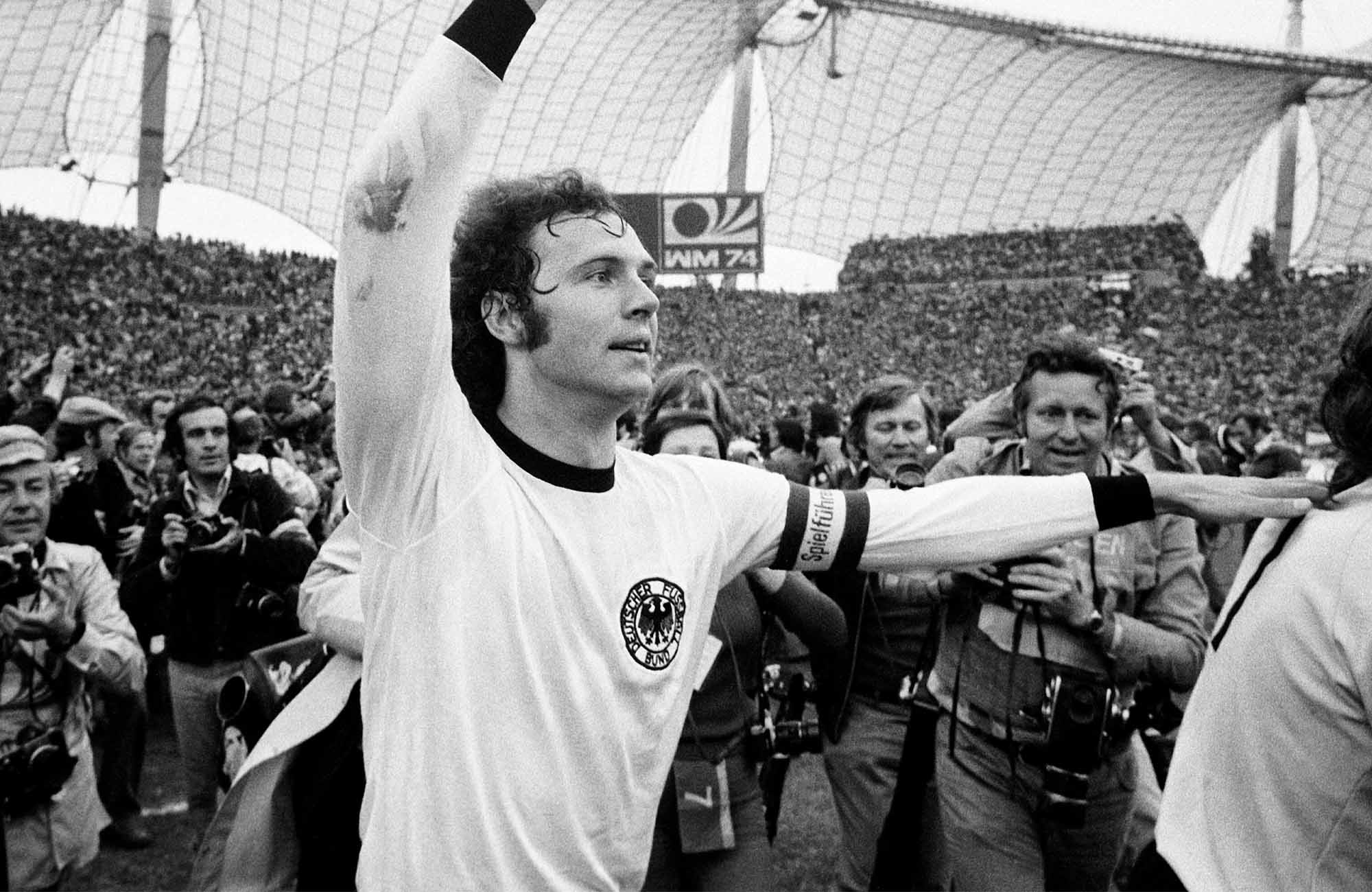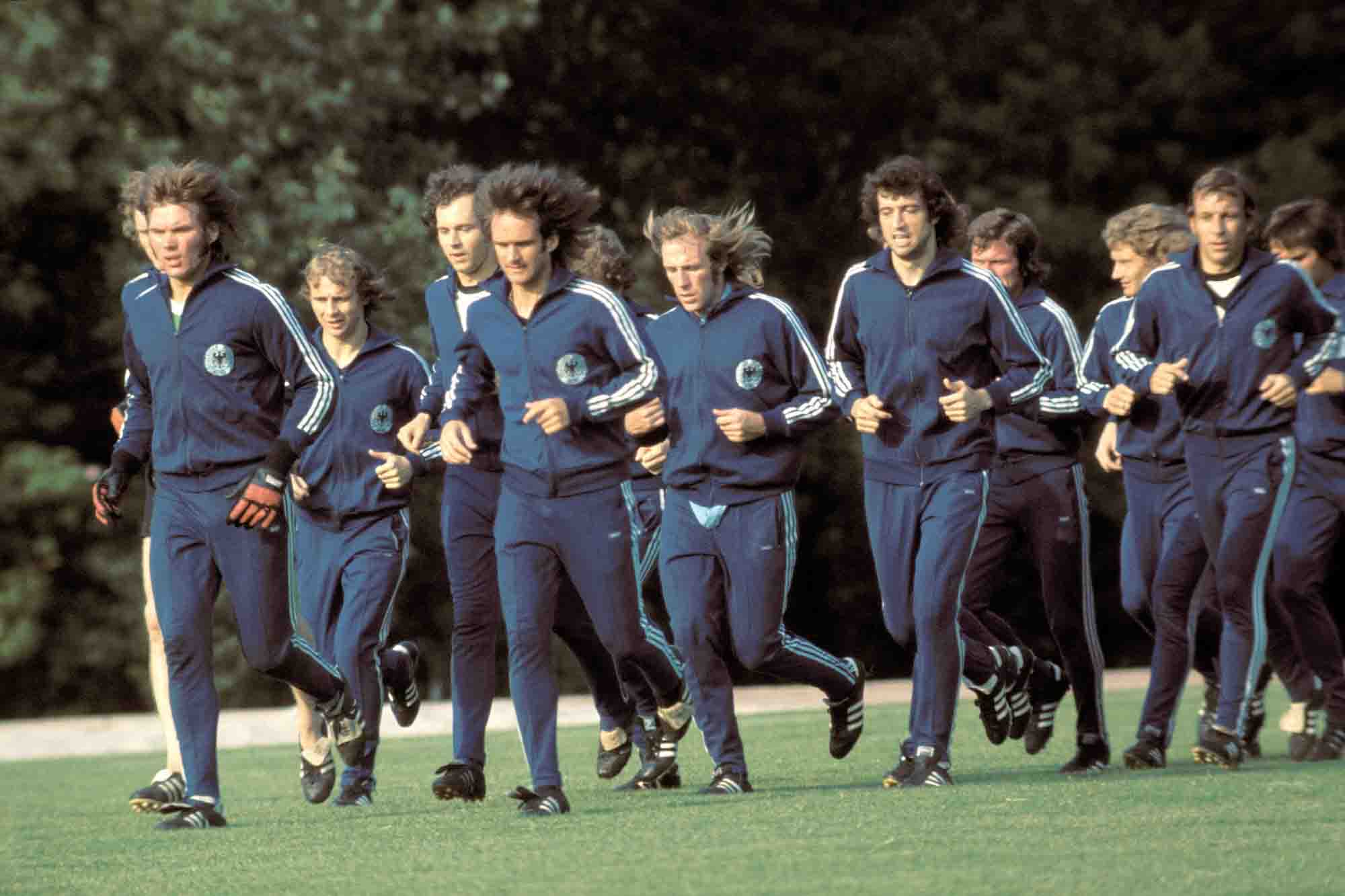
The 1974 soccer World Cup in Germany became the highlight of Franz Beckenbauer's playing career: On July 7, 1974, the dream of winning the title at the home stadium in Munich came true for him and his team.

Even in advance, there were disputes that threatened to escalate. The team was dissatisfied with the bonus offered by the DFB for the World Cup title of 30,000 DM per player. Italian players should get four times that amount. Some German players even threatened to leave training camp, even though they probably would not have actually implemented this threat. In the end, a premium of 75,000 DM was agreed upon. One thing became clear even before the World Cup: A new generation of players was on the pitch. One that no longer followed all orders without question, but brought in its own opinions and attitudes. Franz described it this way in his book: “It was now less about money than about demonstrating one's own strength. For the first time in German soccer history, a team tried to impose their will on the DFB leadership. ”

It was not only the disputes over the bonuses that caused tension: The team was literally sealed off at the sports school in Malente, because just two years after the attack at the Olympic Games in Munich, there was a fear of terror and the highest security measures were taken. Franz said about BILD during the World Cup: “People go crazy in Malente. ”
The preliminary round was also tough. A moderate opening game with 1-0 against Chile and an equally unconvincing 3-0 against Australia slowly dwindled hopes for the title. But no one could have guessed which disaster would follow next: On June 22, 1974, the BRD team played against the DDR team: A symbolic duel that the Federal Republic of Germany desperately wanted to win. But things turned out differently: In the 78th minute, DDR player Jürgen Sparwasser scored a surprising 0-1 score and shocked the DFB team. Franz and the team were unable to turn things around until the final whistle. The DDR won — and the game went down in history as a debacle and embarrassment.

But looking back, it was precisely this game that proved to be a turning point: The team was suddenly awake, complacency gave way to new determination. It was Franz who moved forward in this phase and demonstrated his leadership skills as captain. The famous “Malente Night” is still regarded today as a symbol of this departure. After the defeat, there was an open discussion between players and coaches at the sports school in Schleswig-Holstein. Criticism, emotions and clear words shaped the night. Franz took on the role of mediator. With his authority and ability to get people behind him, he made a significant contribution to turning an unsettled team into a cohesive unit. He convinced coach Helmut Schön to change the team and created a new spirit of optimism, the so-called “spirit of Malente.”
From the intermediate round on, another German team showed up. With disciplined defensive but also playing strength, the team made it to the final. Before the final, Franz invited the team to a garden party at his house in Munich to further strengthen solidarity.
In the final on July 7, 1974, the DFB team met the favored Dutchmen led by Johan Cruyff. After just a few minutes, the German team fell behind due to a penalty. But once again it was Franz who kept calm, arranged the game from behind and gave the team the confidence to come back. In the 23rd minute, there was a great opportunity to equalize: The DFB team was also awarded a penalty. Paul Breitner grabbed the ball and turned confidently to 1:1. In the 43rd minute, Gerd Müller turned the game with the goal 2-1. The Dutch fought in vain — they couldn't get the ball into the goal anymore.

The German team was crowned world champions at the Munich Olympic Stadium. In front of 80,000 spectators, Franz raised the World Cup trophy and the stadium's tent roof vibrated. He was the first captain in German history to hold up the newly created FIFA World Cup Cup: The iconic golden trophy that is still awarded at every World Cup today. His role as Libero, who not only defended but also steered the game, became a symbol of a new soccer era.
In the end, Franz said: “Give Sparwasser the 23rd medal.” Without the disastrous defeat against the DDR and the subsequent “spirit of Malente,” the team would probably never have awakened to the strength that led them to the title in the end.
The 1974 World Cup showed that Franz was more than just an outstanding player. He was the head, the strategist, the face of a team that came back stronger after setbacks. The triumph in his own country made him a figure who became an icon far beyond soccer.

